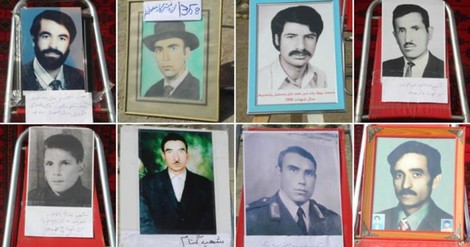Your podcast discovery platform
Curious minds select the most fascinating podcasts from around the world. Discover hand-piqd audio recommendations on your favorite topics.

piqer for: Technology and society Global finds Globalization and politics
Emran Feroz is an Afghan-Austrian journalist currently based in Stuttgart, Germany. He is regularly writing from Afghanistan, often focusing on the Middle East, Central Asia, drone warfare, refugee policies and human rights. Emran is writing in both German and English. His work has already appeared in international media outlets such as Al Jazeera, The Intercept, Alternet, The Atlantic or the New York Times and in various German and Austrian news papers and magazines.
Thousands Of Afghans Have Been Gone Since The 1980s
It is still rather unknown that thousands of Afghans have been gone since the 1980s. Most of them, mostly men, vanished after the then communist regime in Kabul ordered their detention and execution.
The regime's intelligence service, once known as KHAD, played a leading role in these actions. It had a special "death list" and was infamous for torturing its victims. In fact, the whole security apparatus wasn't much different than the one of the Assad clan in Syria.
All kinds of people were affected by the purge in Afghanistan: Teachers, religious leaders, civil servants, tribal leaders, students or doctors.
They were all accused of having "anti-revolutionary" sympathies.
More than 27,000 people disappeared in Kabul alone — and possibly 100,000 across the country — in just 20 months. Most were buried in mass graves that have yet to be exhumed.
Some of my own relatives vanished then. Fortunately, they reappeared. But many others didn't.
Some observers say that even today, Afghan security forces have adapted KHAD's practices from back then. As HRW points out in this report, a recent UN report on torture in Afghanistan cites numerous accounts of people vanishing after being taken into custody by the police in Kandahar in 2015 and 2016.
Stay up to date – with a newsletter from your channel on Globalization and politics.
